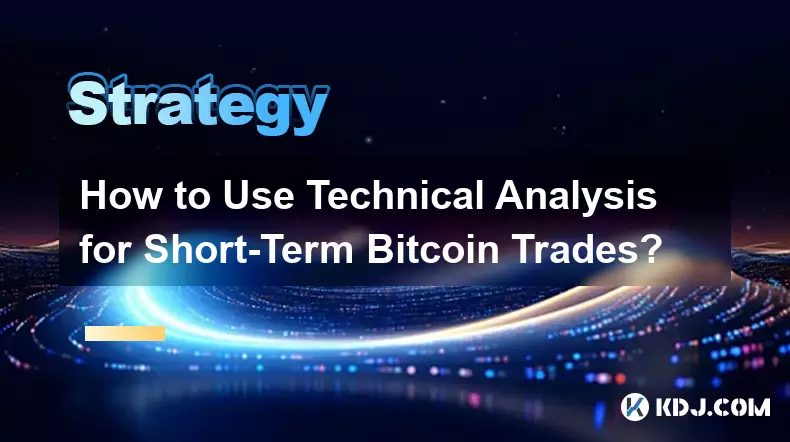-
 bitcoin
bitcoin $87959.907984 USD
1.34% -
 ethereum
ethereum $2920.497338 USD
3.04% -
 tether
tether $0.999775 USD
0.00% -
 xrp
xrp $2.237324 USD
8.12% -
 bnb
bnb $860.243768 USD
0.90% -
 solana
solana $138.089498 USD
5.43% -
 usd-coin
usd-coin $0.999807 USD
0.01% -
 tron
tron $0.272801 USD
-1.53% -
 dogecoin
dogecoin $0.150904 USD
2.96% -
 cardano
cardano $0.421635 USD
1.97% -
 hyperliquid
hyperliquid $32.152445 USD
2.23% -
 bitcoin-cash
bitcoin-cash $533.301069 USD
-1.94% -
 chainlink
chainlink $12.953417 USD
2.68% -
 unus-sed-leo
unus-sed-leo $9.535951 USD
0.73% -
 zcash
zcash $521.483386 USD
-2.87%
How to make money trading CoinEx contracts
CoinEx's contract trading platform empowers traders with leverage, margin trading, perpetual contracts, and advanced strategies to generate potential returns in the cryptocurrency market.
Nov 25, 2024 at 03:17 am

How to Make Money Trading CoinEx Contracts: A Comprehensive Guide
Introduction
CoinEx, a renowned cryptocurrency exchange, offers a comprehensive contract trading platform that provides traders with the opportunity to leverage their trading strategies and potentially generate substantial returns. This guide will delve into the intricacies of CoinEx contract trading, empowering you with the knowledge and insights to navigate this dynamic and lucrative market effectively.
Understanding CoinEx Contract Trading
1. What are CoinEx Contracts?CoinEx contracts are financial instruments that derive their value from the underlying asset, typically a cryptocurrency. They allow traders to speculate on the price movements of these assets without actually owning them.
2. Contract SpecificationsEach contract on CoinEx has specific characteristics such as:
- Contract size (e.g., 100,000 USDT)
- Price index (e.g., BTC/USDT)
- Funding rate (charged every 8 hours)
- Expiration date (when the contract expires)
CoinEx offers two main contract types:
- USDT-Margined Contracts: These contracts are margined using USDT.
- Coin-Margined Contracts: These contracts are margined using the underlying asset (e.g., BTC).
Step-by-Step Guide to Trading CoinEx Contracts
1. Create and Fund an AccountBegin by creating a CoinEx account and verifying your identity. Once your account is active, deposit funds to fund your trading account.
2. Choose a ContractSelect a contract that aligns with your trading strategy and risk tolerance. Consider factors such as the underlying asset, contract size, and expiration date.
3. Place an OrderOnce you have selected a contract, determine your order type (e.g., limit order, market order). Specify the quantity and price of the order.
4. Manage Your PositionMonitor your open positions closely. Adjust your stop-loss and take-profit orders as needed to manage risk and optimize profits.
5. Close Your PositionWhen ready, close your position to realize your profits or losses. You can close your position by placing an order with the opposite side (e.g., selling after buying).
Advanced Concepts
1. Leverage and Margin TradingCoinEx contracts allow you to use leverage, which amplifies your potential returns but also increases your risk. Margin trading involves borrowing funds to increase your purchasing power.
2. Funding RateThe funding rate is a fee charged or paid to maintain open positions. It is determined by the supply and demand for the contract.
3. Perpetual ContractsPerpetual contracts have no expiration date, allowing traders to hold positions indefinitely. However, they do have a funding rate.
4. Trading StrategiesEffective contract trading requires a well-defined trading strategy. Common strategies include scalping, trend following, and range trading.
Tips for Success
- Understand Risk: Contract trading involves significant risk. Only trade with funds you can afford to lose.
- Educate Yourself: Dedicate time to learning about contract trading concepts, strategies, and risk management.
- Practice: Use a demo account to practice trading before risking real funds.
- Monitor the Market: Stay abreast of market news and price movements affecting the underlying asset.
- Control Your Emotions: Avoid making impulsive trades based on emotions. Stick to your trading plan.
- Trade Responsibly: Manage your positions carefully, set realistic profit and loss targets, and adhere to sound risk management principles.
Disclaimer:info@kdj.com
The information provided is not trading advice. kdj.com does not assume any responsibility for any investments made based on the information provided in this article. Cryptocurrencies are highly volatile and it is highly recommended that you invest with caution after thorough research!
If you believe that the content used on this website infringes your copyright, please contact us immediately (info@kdj.com) and we will delete it promptly.
- Blockchains, Crypto Tokens, Launching: Enterprise Solutions & Real Utility Steal the Spotlight
- 2026-01-31 12:30:02
- Crypto Market Rollercoaster: Bitcoin Crash Recovers Slightly Amidst Altcoin Slump and Lingering Fear
- 2026-01-31 13:10:01
- Solana's Stumble and APEMARS' Rise: Crypto Investors Navigate Volatile Markets
- 2026-01-31 13:05:01
- Bitcoin Options Delta Skew Skyrockets, Signaling Intense Market Fear Amidst Volatility
- 2026-01-31 13:00:02
- Cardano Secures Tier-One Stablecoin: USDCX Arrives Amidst Global Regulatory Push
- 2026-01-31 13:00:02
- A Shining Tribute: Oneida Woman, Washington's Army, and the New $1 Coin
- 2026-01-31 12:55:01
Related knowledge

How to Develop a Crypto Exit Strategy to Secure Your Profits?
Jan 22,2026 at 10:19am
Understanding Market Cycles and Timing1. Cryptocurrency markets operate in distinct phases: accumulation, markup, distribution, and markdown. Recogniz...

How to Find and Invest in Promising DePIN Crypto Projects?
Jan 19,2026 at 06:19pm
Understanding DePIN Fundamentals1. DePIN stands for Decentralized Physical Infrastructure Networks, combining real-world hardware deployment with bloc...

How to Find Liquidity Pools with the Lowest Impermanent Loss Risk?
Jan 25,2026 at 05:59pm
Fundamental Characteristics of Low-Risk Liquidity Pools1. Stablecoin pairs dominate the lowest impermanent loss environments due to minimal price dive...

How to Analyze Market Sentiment Using the Crypto Fear & Greed Index?
Jan 24,2026 at 09:39am
Understanding the Crypto Fear & Greed Index1. The Crypto Fear & Greed Index is a composite metric that aggregates data from multiple sources including...

How to Hedge Your Crypto Portfolio Against a Market Crash?
Jan 19,2026 at 03:40pm
Risk Assessment and Portfolio Allocation1. Determine the total exposure to high-volatility assets such as memecoins or newly launched tokens without a...

How to Use Technical Analysis for Short-Term Bitcoin Trades?
Jan 25,2026 at 01:00pm
Understanding Candlestick Patterns1. Bullish engulfing formations often appear after a sustained downtrend and signal potential reversal points where ...

How to Develop a Crypto Exit Strategy to Secure Your Profits?
Jan 22,2026 at 10:19am
Understanding Market Cycles and Timing1. Cryptocurrency markets operate in distinct phases: accumulation, markup, distribution, and markdown. Recogniz...

How to Find and Invest in Promising DePIN Crypto Projects?
Jan 19,2026 at 06:19pm
Understanding DePIN Fundamentals1. DePIN stands for Decentralized Physical Infrastructure Networks, combining real-world hardware deployment with bloc...

How to Find Liquidity Pools with the Lowest Impermanent Loss Risk?
Jan 25,2026 at 05:59pm
Fundamental Characteristics of Low-Risk Liquidity Pools1. Stablecoin pairs dominate the lowest impermanent loss environments due to minimal price dive...

How to Analyze Market Sentiment Using the Crypto Fear & Greed Index?
Jan 24,2026 at 09:39am
Understanding the Crypto Fear & Greed Index1. The Crypto Fear & Greed Index is a composite metric that aggregates data from multiple sources including...

How to Hedge Your Crypto Portfolio Against a Market Crash?
Jan 19,2026 at 03:40pm
Risk Assessment and Portfolio Allocation1. Determine the total exposure to high-volatility assets such as memecoins or newly launched tokens without a...

How to Use Technical Analysis for Short-Term Bitcoin Trades?
Jan 25,2026 at 01:00pm
Understanding Candlestick Patterns1. Bullish engulfing formations often appear after a sustained downtrend and signal potential reversal points where ...
See all articles





















![Ultra Paracosm by IlIRuLaSIlI [3 coin] | Easy demon | Geometry dash Ultra Paracosm by IlIRuLaSIlI [3 coin] | Easy demon | Geometry dash](/uploads/2026/01/31/cryptocurrencies-news/videos/origin_697d592372464_image_500_375.webp)




















































